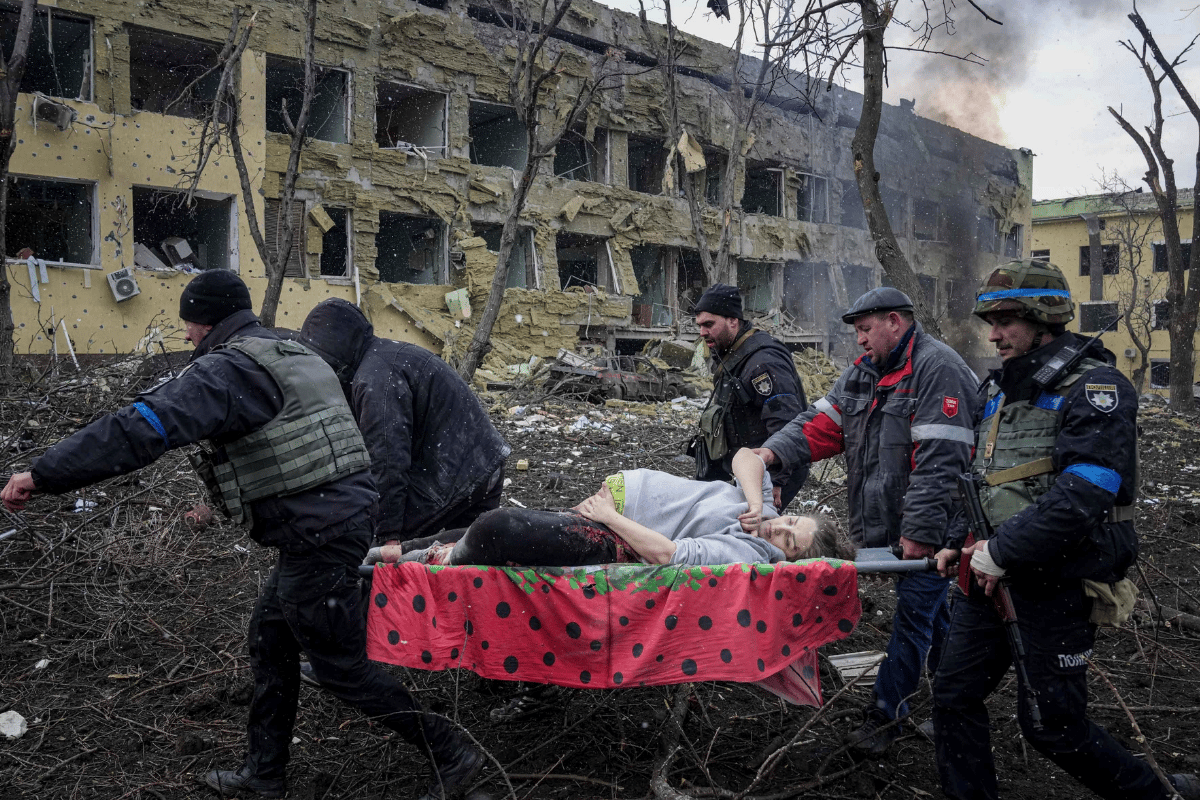
This post includes distressing imagery and could be triggering for some readers.
As Russia's invasion of Ukraine enters its third week, it is apparent that Vladimir Putin has little regard for civilian life in his bid to gain control over Ukraine.
In the last week we have heard of ceasefire negotiations between the two countries, with Ukraine trying to evacuate its citizens and bring aid through humanitarian corridors. But as each ceasefire attempt fails, there are reports of Russian forces opening fire on evacuation routes and creating a blockade, leaving hundreds of thousands of innocent people trapped in Ukraine.
Not to mention, we have seen countless instances of Russian forces targeting civilian buildings, hospitals and healthcare buildings.
For anyone witnessing these acts, it's seems that war crimes are now occurring in Ukraine.
Watch: Russian air strikes in Ukraine. Post continues below.
A mosque in the southern Ukrainian city of Mariupol was shelled by Russian forces yesterday. It was sheltering over 80 adults and children seeking refuge.
